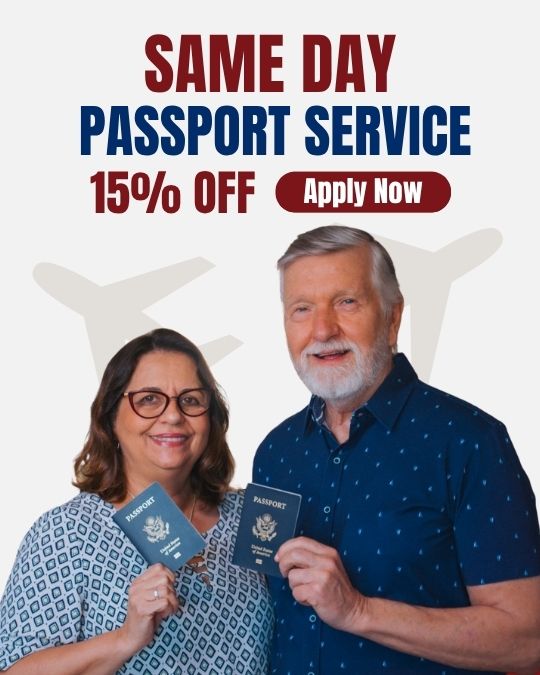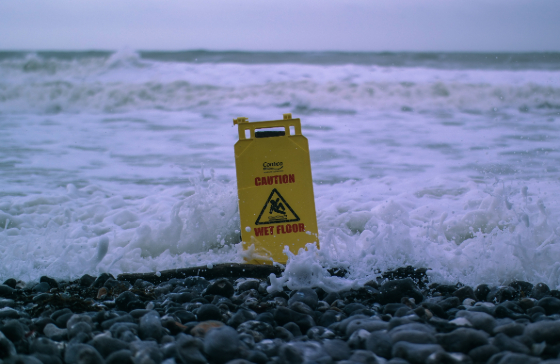
Travel safety issues are important to consider whenever you plan for a trip - especially an international one. It is essential to ensuring a safe and rewarding journey for you and your family.
efore diving in, know that planning for the worst-case scenario can make even the most seasoned traveler anxious. That said, being prepared will help you reduce that anxiety once you are on your way.
Both overseas and local travel can be a disheartening experience for the unprepared traveler. Observing some basic rules can save a lot of heartache and problems. After all, personal security when traveling is important, but it should not get in the way of enjoying your vacation.
Travel Safety - Knowledge is Power
For one thing, there are plenty of travel and security companies that thrive on worry and unprepared travelers. These companies push products and services that overemphasize the dangers out there - instead of promoting the simple, proactive things you can do to on your own to protect yourself.
Rather than handing over your safety concerns to someone else, take control of your own travel safety plan. That way, on departure day, you can feel confident that your travel experience will be a safe and secure one. After all, travel is supposed to be a fun and rewarding journey. Spending a trip bogged down by fear and worry is no way to travel!
There are some essential steps you can take to be safe and confident in your travels. Here are some of our favorite recommendations:
Keep Your Travel Documents Safe
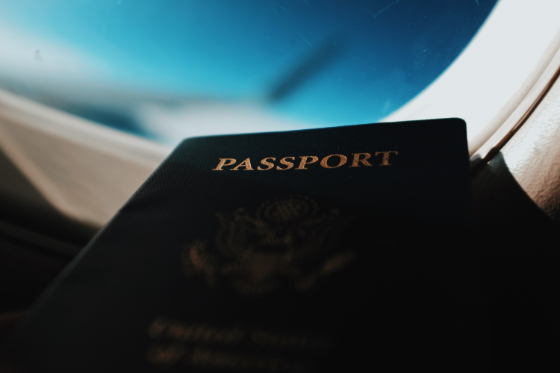
Getting a passport can be a very involved (and potentially expensive) process – all the more reason to protect yours while you travel! In most cases, you only need your passport with you on travel days to cross borders, check in to hotels, and board certain types of transportation. If you must have your passport on you, keep it on your person in a front or interior pocket (not in a bag or back pocket where it can easily be lost or snatched). If the pocked can be snapped, buttoned, or zippered, even better!
Most hotels have security safes where you can lock up the things you do not need to be carrying around. On a day where you won’t be traveling or driving, you are better off leaving your license, backup credit card(s), passport, and other valuable documents secured in your hotel than with you.
As an additional safeguard, it is a good plan is to make photocopies of all your valuable travel documents, including your passport, and store them separately from the originals. If you are unfortunate enough to have your documents stolen or lost, then you at least have the copies for identification purposes (a photocopied passport will not allow you reentry to the United States). This will be a huge help in getting a replacement and will serve as crucial credentials in an emergency.
As a general rule, do not carry more documents and personal information around with you than you actually need. Furthermore, some items should simply be left at home. For example, you are probably never going to need your birth certificate when you travel.
Check the Latest Travel Alerts
The U.S. State Department maintains up-to-date travel advisories for every country in the world. Not only will this give you a general sense of what to be aware of in your destination country, but there are often specifics about particular areas and/or regions that are of particular concern. This information is critical to review as you plan your travel and as your departure date approaches.
For more on how the U.S. Department of State's travel warning system works, check out our complete guide here.
Use Credit Cards
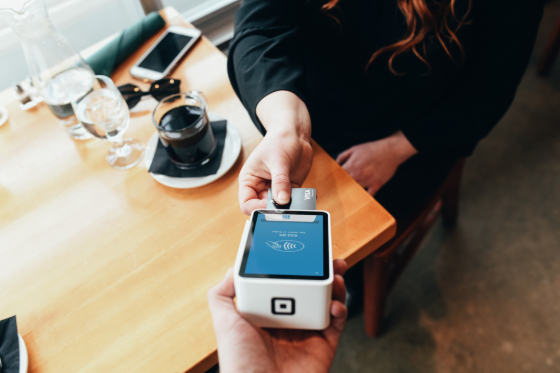
Use your credit card when you travel - full stop. The combination of safety and convenience will make your trip much simpler.
Most credit card companies include built-in protections for both you and your purchases. If you should have the card lost or stolen, a simple phone call will cancel the card and get another one sent to you immediately. In most cases, you won't even be held responsible for any purchases you didn't make.
That said, it is important to let your credit card company know when you're planning to travel (either internationally or domestically). Most banks will flag suspicious activity like large purchases or purchases occurring far from your billing address. This can be a valuable protection to have, but it can cause issues when you are the one using your card away from home. Be sure to call to your credit card company before traveling to be sure your account doesn't get frozen for suspicious activity.
Also, on that same call, find out how the credit card company expects you to deal with common travel issues like a lost or stolen card. Know in advance how fast they can get you a new card and what information you need to provide them to do so. Keep this information (including any credit card company phone numbers and contact information) safely packed apart from your wallet or purse so it can be retrieved if your card becomes lost.
Once you arrive at your destination, it is also a good idea to stash a couple of days' funds somewhere so you can survive if you lose your wallet or have to wait for a replacement credit card to arrive.
Be Smart About Cash

While credit cards are convenient, it is important to remember that credit cards (and cash apps, on your phone, for that matter) are not accepted everywhere. Even in the United States, there are certain restaurants, stores, and services that are cash-only. For that reason, you will want to be sure that you have at least some cash on you at all times while on your journey. This little bit of foresight will save a heap of worry and upset (not to mention being stuck somewhere without any money!).
While travel is expensive, you can front-load a lot of that cost so that you are not having to travel with large sums of money. Pay for as much of the trip as you can -including flights, hotel stays, activities, amenities, etc.- before you leave. This will prevent you from being stranded somewhere or not having somewhere to stay if you get separated from your things. The less you have to pay for once on the road, the easier it will be to deal with in an unexpected emergency.
Traveler's checks are another viable option for having access to funds while abroad - especially as a protection against a lost credit card or wallet. The key safety feature of Traveler's checks is that you need an ID to cash them; this means that if you should lose a check, it should be challenging for someone else to access the funds. Naturally, do not keep traveler's checks in the same place as your credit card.
Should you need to access funds in a pinch, be sure your withdrawals are happening inside reputable banks or financial institutions (meaning with cameras, security, and actual staff). Sure, ATMs are convenient, but they are huge targets for muggers and pickpockets. Nowadays, using the wrong ATM could even expose your account information to hackers. Waiting in line at a teller is a smarter move.
Protect Your Personal Information
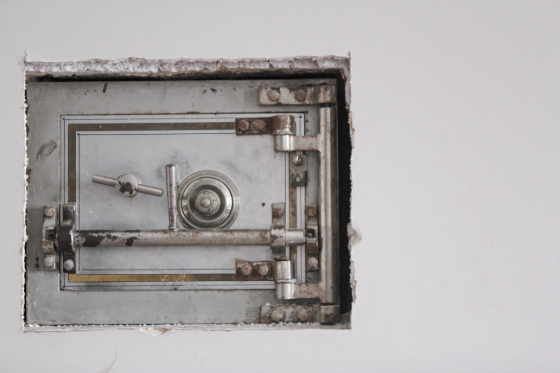
Do not give out personal information over the phone when traveling - particularly in countries with older phone systems that can still be used for evesdropping. If you have to send things like social security numbers, ask if you can fax them. Better still, ask if they have a secure web site where you can enter the information (Use only addresses that start with “https://” and look for the padlock symbol in the address bar to show that your connection is secure).
When filling out forms either in preparation for or during your trip, only fill in the minimal amount of information. The less personal information you have to send, the better. Be especially vigilant about sharing your social security number.
In reality, there is not much that you really should have to disclose your social security number for. If a form asks for a social security number, ask why it is needed, and if it is not vital, then do not enter it.
Remember that your social security number is the motherlode to a thief. Once in someone else’s hands the combination of your name, address, and social security number makes your life (both personal and financial) an open book. Identity theft can be a massive problem to fix. if your identity is stolen it has been reported that you will probably spend over 100 hours and a minimum of 6 months handling it. Even then, your credit report will still have derogatory information on it that will take years to remove.
Share your Itinerary
Make sure trusted friends and/or relatives know where you will be on your trip and when. Include contact information for hotels, embassies, as well as the timing of any planned excursions. Should the worst happen, at least someone will have the knowledge of where you were and what you were doing. This may save the police days of work should an emergency arise. It can also make it easier to reach you in case there is an emergency back at home that needs your attention.
Keep your Technology Secure
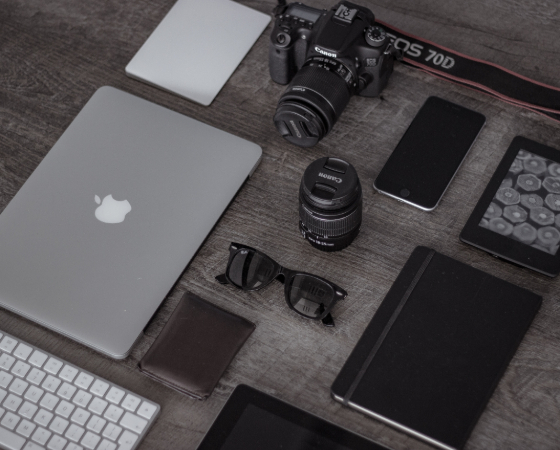
A lot has been made lately of technology screening at border-crossing checkpoints. As a rule, don’t bring any technology with you on a trip that contains sensitive information or data if you can avoid it. There is a good chance that at some point in your travels it will not stay as secure as it does at home or in your office.
If you decide to carry a computer or other electronic device with you while you travel, backup and wipe any information that is unnecessary to access while on your trip. This includes financial programs, tax preparation files, and any other software that stores personal or sensitive information.
Additionally, make sure you are taking advantage of every password protection feature available so your data is secure even if it does get stolen. Don’t rely on facial-recognition or biometric sensors. While these are convenient at home, they can be easily circumvented in the wild.
Instead, use a password with a combination of letters, numbers, spaces, and symbols that are not related to you in any way (i.e. do not use your initials and the year of your birth). The longer it is, the less chance someone is going to break it. Make sure you have it well memorized before you set it or you will also be locked out (and that is guaranteed to ruin your trip before you even start).
Get Travel Insurance
Be sure to purchase travel insurance before embarking on a trip. In most cases, it is a relatively inexpensive addition to your travel budget that can wind up saving you big. Should you lose luggage, run into unexpected cancellations, or even have to cancel your trip, a travel insurance policy can save you from expenses like lost deposits or replacement costs.
Get quotes from a variety of travel insurance providers before deciding on the policy that is right for you.
Stay Alert

The most proactive step you can take to ensure your safety while traveling is to remain aware of your surroundings at all times. Sure, it’s fun to throw on your noise-cancelling headphones and explore new places, but you need all of your senses available to stay safe. Make it a point to focus on the sights and sounds around you. When indoors, know where the nearest entrances and exit points are. While trekking outside, keep a map handy to avoid getting lost. Be especially vigilant in large crowds
Being alert is especially important in the airport. For example, when going through the airport security screening, watch what is happening at the other end of the body scanning machine. You should make sure there are no unauthorized people hanging around, just waiting for your computer or other baggage to come through ahead of you while you are being scanned. A thief can grab your computer or bag and be gone without you even realizing it. Use your eyes and know what is happening around you.
It bears mentioning that intoxicated travelers make for easy targets. No matter where you are, if you are in a situation where you insist on drinking or partying, be sure to do so as a part of a group with people you trust.
Ultimately, you don’t need to be the world’s most paranoid traveler with your head on a swivel to be safe. That said, you need to be proactive in new and foreign situations to make sure you aren’t putting yourself at risk unnecessarily.
Prepare for Medical Emergencies

Before you travel, it is a good idea to schedule a quick checkup with your doctor and a quick call with your health insurance provider. The former helps ensure you are good shape to travel, while the latter helps prevent any surprises should something go wrong.
Not all health insurance policies cover having to visit a foreign emergency room or getting a prescription filled abroad. What’s more, if you need a referral for certain services, that can be tough to get when you are away from home. If your health insurance doesn’t provide the coverage you need, strongly consider adding a supplemental policy to be sure you can get the care you need.
In addition to planning for the big stuff, don’t forget about the more mundane medical care issues:
- Pack a first-aid kit (in your checked luggage) to deal with things like small wounds and blisters.
- Bring water purification tablets to be sure you don’t get sick from improperly filtered water.
- Don’t forget your prescriptions! While you should bring enough prescribed medication for the duration of your trip (be advised: bringing too much or improperly labeled medication can cause problems), you should bring copies of your prescriptions, too. Not only will this help you pass through customs, but it will allow you to get refills or replacements while abroad if you need to.
Schedule Regular Check Ins
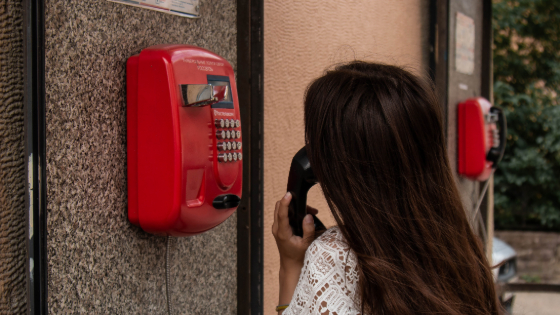
Once you arrive in a foreign land, be sure to register with the local U.S. Embassy. The Smart Traveler Enrollment Program (STEP) was created by the U.S. Department of State to make it easy for American international travelers to receive the latest travel advisory updates, access helpful passport recovery services, receive urgent information from home, and even expedite your evacuation should there be an international incident.
At the same time, you should schedule regular check-ins with friends or family members back home. A periodic check in or email will let everyone know that you are alright and where you are in your itinerary.
Explore Ridesharing Services
Taxis and car services are prime opportunities for scamming an international tourist. Rather than hopping into the first available ride at the airport, consider using a ridesharing service. If you have a functioning smartphone, these services offer an extra layer of security for riders by incorporating GPS tracking and driver quality assurance.
Above all else, educate yourself and be prepared. Taking the time to plan for the worst can help you confidently relax and enjoy your travels once they begin. Protect yourself and belongings dearly – especially your passport – but know that there are ways to solve most problems as long as you have a plan.
Should you lose your passport, know that there are many reputable passport expediting companies that will help you replace a lost or stolen passport very fast – even while abroad. Rush My Passport is our expert recommendation for expert care in these upsetting situations.
Essential Travel Resources for Your Next Adventure
- Travel Insurance – Protect your trip with trusted, affordable coverage for medical emergencies, cancellations, and more.
- Flights & Hotels – Find the best deals on flights and accommodations worldwide with Booking.com’s powerful search engine.
- Tours & Local Experiences – Discover unforgettable experiences with top-rated local tours and activities in every destination.
- eSIMs & Phone Plans – Stay connected abroad with affordable eSIM data plans—no physical SIM card required.
- Luggage & Travel Gear from Amazon's Best Sellers – Shop the most popular backpacks, luggage, and travel accessories travelers swear by.
- Rocket Languages Award-Winning Courses – Learn a new language fast with immersive, self-paced courses loved by travelers.
- Registered Passport Courier Services – Need your passport fast? Use trusted expediters to save time and avoid stress.


